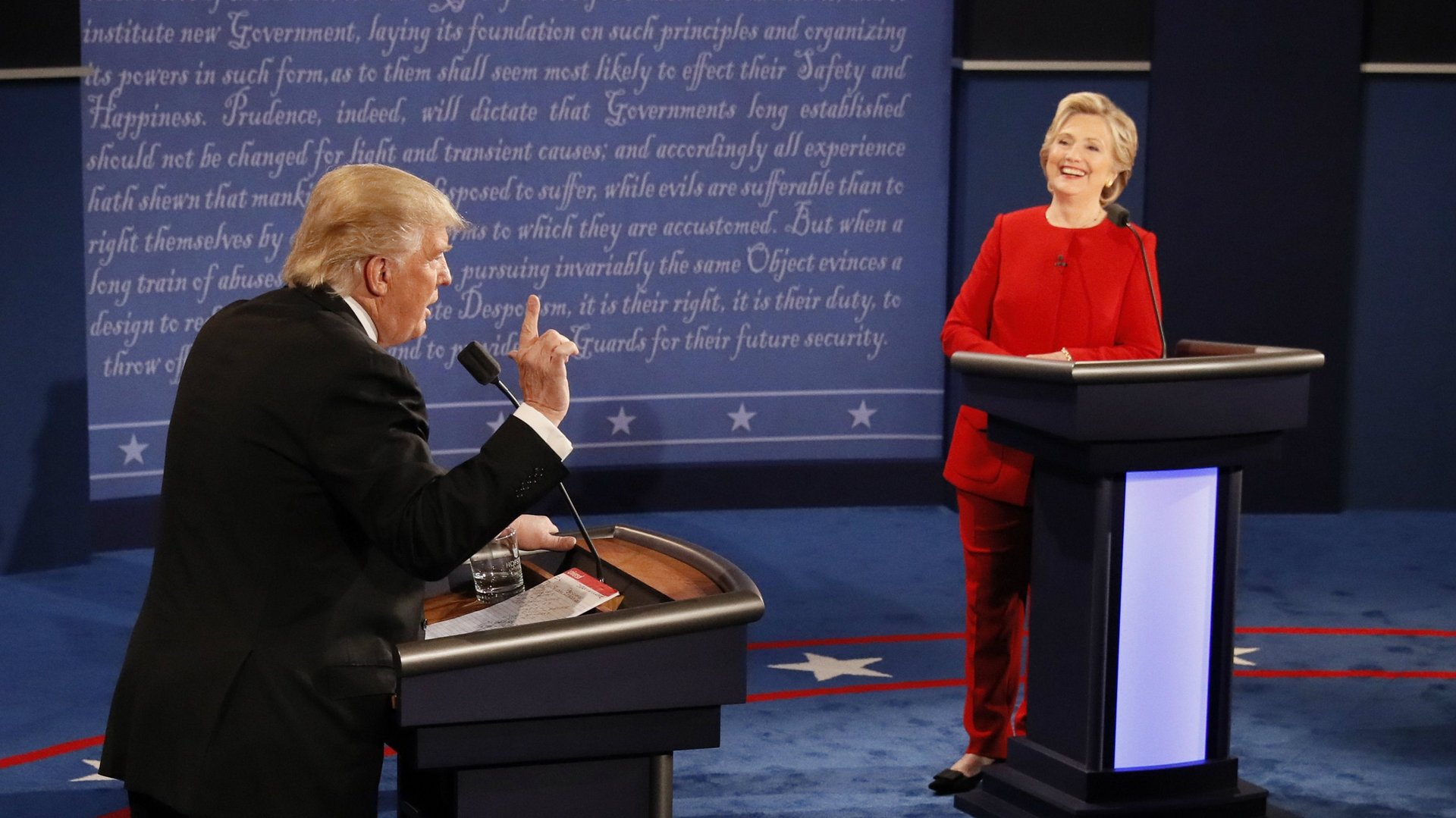How Clinton and Trump can spin the latest US jobs report to their advantage
It’s one month until the US presidential election, and the economy—as always—will play a big role in making up voters’ minds.


It’s one month until the US presidential election, and the economy—as always—will play a big role in making up voters’ minds.
That’s why both Hillary Clinton’s and Donald Trump’s camps will be scrutinizing today’s monthly jobs report (pdf) for fodder to push their case for becoming president.
American employers added 156,000 jobs in September, a bit less than the 172,000 gain analysts were expecting. However, payrolls data for the previous month were revised up somewhat. On average, 178,000 jobs have been added each month this year, a decent enough pace.
As the candidates prepare for their next debate (on Oct. 9), they won’t come up with any talking points about “decent” or “pretty good” job growth.
Trump has promised to create 25 million new jobs over the next decade, which implies a significant acceleration in the labor market. Clinton, meanwhile, will stress that her party’s recent record on job growth has been historically strong. In fact, September’s gain marks six years of interrupted monthly job gains, the longest streak in modern history.
How else will Clinton and Trump try to spin this report to their advantage? Here are two pointers for each camp, shaded in Republican red and Democratic blue.
🐘 Trump could point to the fact that the unemployment rate inched up to 5% in September, after three months at 4.9%. That’s the highest rate so far this year, showing no improvement from 12 months ago.
🐴 Clinton can counter that this is the second-lowest election-eve unemployment rate in recent memory. Also, more workers are coming off the sidelines and actively looking for work—the labor participation rate rose to 62.9% in September, the highest result in six months.
🐘 But what good is a job if it doesn’t pay the bills? Trump has hammered free-trade deals and rising immigration as the cause of lackluster wage growth, and the almost imperceptible acceleration in earnings growth in recent years supports his case.
🐴 Yes, average hourly earnings rose just 2.6% in September, versus the previous year. But that’s up from 2.4% in August, and only one month (July) has recorded an even faster pace since 2010.